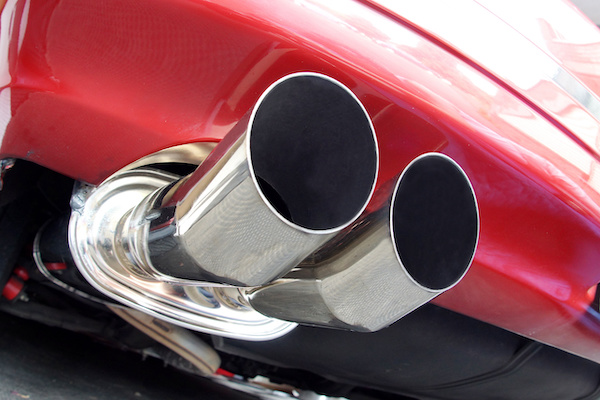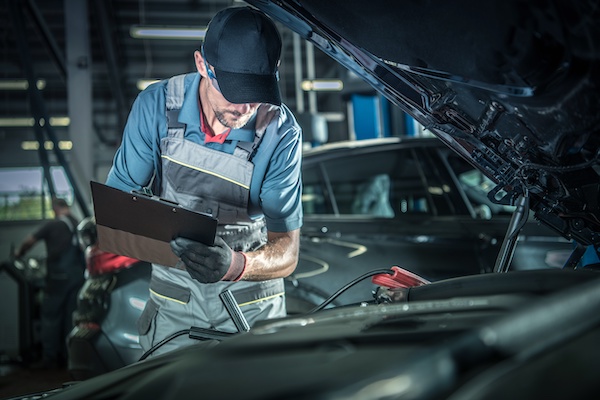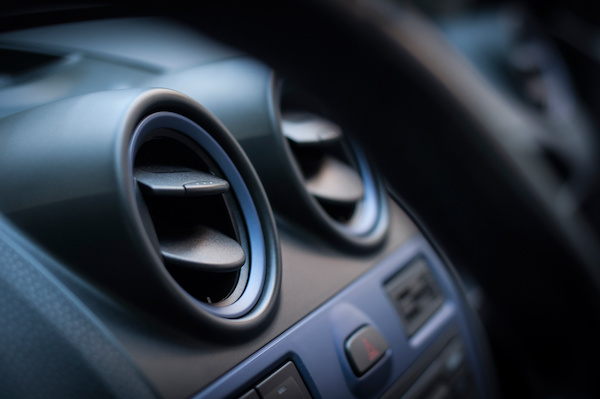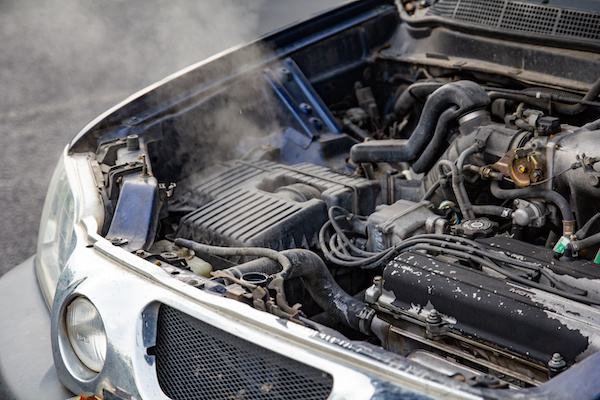Posted on 8/26/2022

If you’ve ever heard a car make loud roars as it accelerates, it is because the owner has a cracked or cut out muffler. The muffler is an exhaust system component responsible for canceling out engine sounds to ensure smooth and quiet drives. In addition to silencing the engine sounds, the muffler also plays a part in protecting you and the environment from the damaging effects of toxic gasses. Your combustion engine spits out byproducts, and the exhaust directs them through a series of pipes and out the back of your vehicle. Mufflers are intended to last a very long time, but they don’t always last forever. The inside and outside of your car’s muffler can experience significant wear and tear over time. If you have an older vehicle, there’s a good chance you may have to replace the muffler soon. Since mufflers are metal, the common culprit of muffler decay is rust. External Rust - Rust can develop on the outside of the muffler as a result ... read more
Posted on 7/25/2022

The summer season offers an exciting opportunity for road trips and, unfortunately, car problems. Why? A heavy amount of heat can affect your car's crucial components. So, if your summer cheat sheet is filled with trips to the beach, let's help you enjoy the season safely. Go through this checklist before you decide on driving in those harsh weather conditions. Change the Oil Summer weather is harsh and can turn your engine smoking hot. That is why lubrication is vital. Never wait too long to change the oil unless you are attempting fate. Your engine is more likely to wear if the oil level reduces. So, ensure your engine is lubricated on regular basis. Check Your Brake System Inspecting your brakes to ensure they function well is a no-brainer. But checking your braking system is more than just brakes. Inspect brake pads, brake fluid, rotors, etc., to ensure they are all safe to drive even on the steepest slope. Inspect Your A/C Summer is very hot, so the last thing ... read more
Posted on 6/29/2022

To keep your vehicle and its engine performing well, it is imperative to take it to a trusted auto repair shop for regular tune-ups. Engine tune-ups are a form of preventative maintenance that is a necessity. It can prevent catastrophic accidents and events from happening as well as keep your repair costs low down the line. Additionally, tune-ups can help you or your mechanic spot potential problems early on before they can become fatal. So, What Is A Tune-Up? An engine tune-up is a procedure of rejuvenating your vehicle's engine by cleaning, adjusting, and replacing several key components. The steps may vary from car to car but usually include: Inspecting the condition and level of vehicle fluids and performing an oil change if necessary. Checking the serpentine belt and hoses for signs of aging and damage. Cleaning the engine's fuel-system components to ensure nothing is clogged. Replace the fuel filter, and check the fuel pump or fuel injector for any signs of damage ... read more
Posted on 5/31/2022

Typically, when you notice a bad smell from inside your vehicle, it can be traced back to the vehicle’s A/c system. However, it can also be the engine or another component under the hood that can cause the smell to escape into the cabin. Plus, you don’t want cool air mixed together with something smelly. Common Reasons for Air Conditioning Smells Gas Leak – If the odor coming from your A/C smells like gasoline, you might have a leak. A gas leak can happen in various places, so it is best that you have a professional look for it. Antifreeze Leak – If you catch a sweet smell, it is not a good sign. A sweet smell is coming from your cooling system, and if left unnoticed it can be very harmful. We recommend that you have your cooling system checked out to find and repair the damage or leak. Bacteria or Mold – Over time, bacteria and mold can grow inside your air vents. As the nasty stuff spreads, it can produce a foul smell whenever you turn on the A ... read more
Posted on 4/22/2022

An overheating engine can be stressful, but you don't need to panic. Vehicles can overheat for many reasons, but so long as you act quickly, it needn't be a disaster. The Warning Signs The sooner you respond the better, so familiarize yourself with the most common signs of an overheating engine. These include: Steam or 'smoke' from under the hood The temperature gauge moving into the red zone or to 'H' Unusual odors – if you can smell a sweetish scent coming from the front of your car it may be leaking coolant, while a burnt odor may indicate an oil leak If Your Engine Overheats Here are the best steps you can take to stay safe and give your vehicle a great chance of recovery. Crank up the Heating It might seem counter-intuitive, but the best immediate action is to turn your heater on. This draws heat from the engine, giving you time to find a safe place to pull over. And if the AC is on, you should immediately turn it off to give the engine a brea ... read more